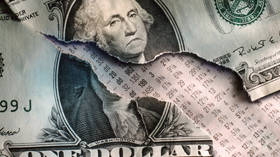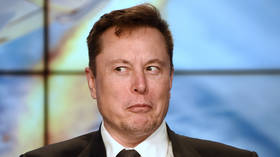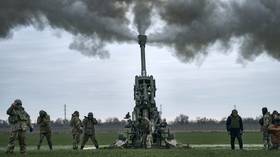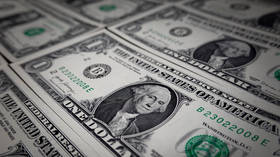World’s richest man praises recession as ‘good thing’

Elon Musk, the world’s richest man, has tweeted in praise of the recession facing the US in response to a follower’s question, suggesting it’s actually a “good thing” because “it has been raining money on fools for too long.” He blamed “Covid-19 stay-at-home stuff” for “tricking” people into thinking they could make money without having to “work hard,” suggesting many people were in for a “rude awakening.”
Yes, but this is actually a good thing. It has been raining money on fools for too long. Some bankruptcies need to happen.Also, all the Covid stay-at-home stuff has tricked people into thinking that you don’t actually need to work hard. Rude awakening inbound!
— Elon Musk (@elonmusk) May 27, 2022
Doubling down on his praise of incipient economic doom, Musk elaborated on his philosophy in response to another follower’s tweet, calling for “companies that are inherently negative cash flow (i.e. value destroyers)” to “die, so that they stop consuming resources.”
It’s not clear what companies Musk was referring to. The massive market capitalization of his own electric car company, Tesla, was built largely on government green energy subsidies.
While it has since become profitable, it certainly did not begin that way. Twitter, too – which Musk agreed to purchase for $44 billion earlier this month – has returned a loss every year of its operation except 2018 and 2019.
Musk seems to be aware of Twitter’s profitability problems, having paused the deal to acquire the social media platform until the percentage of bots and spam accounts is brought under 5%. With just 217 million “monetizable” users who are shown ads on the platform, Twitter is no match for Facebook, monetarily speaking – Mark Zuckerberg’s social network boasts a whopping 1.93 billion subscribers, though its own revenues have been dwindling as well. However, Musk has offered few hints of how he plans to make Twitter profitable.
The SpaceX CEO predicted in his tweet about value-destroying companies that the economic downturn would last “about 12 to 18 months” after announcing in a live-streamed appearance at the All-In Summit in Miami Beach that the US economy was “probably” in a recession.
The US has been sliding into a recession ever since the Covid-19 pandemic led state and federal governments to impose economic shutdowns on nearly all business sectors, then print trillions of dollars in an attempt to make up for the fiscal holes these policies produced.
Massive unemployment programs and loans for distressed businesses also contributed to the economic black hole that swallowed up the economic gains made during the early years of the Trump administration, with many working-age Americans opting to stay at home rather than return to jobs they found demeaning or insufficiently remunerative, while the spike in commodity prices triggered by the US’ response to Russia’s offensive in Ukraine served as the cherry on top of the depression sundae.
With inflation reaching near-record highs – at 8.3%, it’s more than four times the Federal Reserve’s desired rate of 2% – the US is floundering in economically uncharted territory. The Fed has raised interest rates repeatedly and agreed to do so again during its policy meeting earlier this month, with further increases in June and July predicted.













